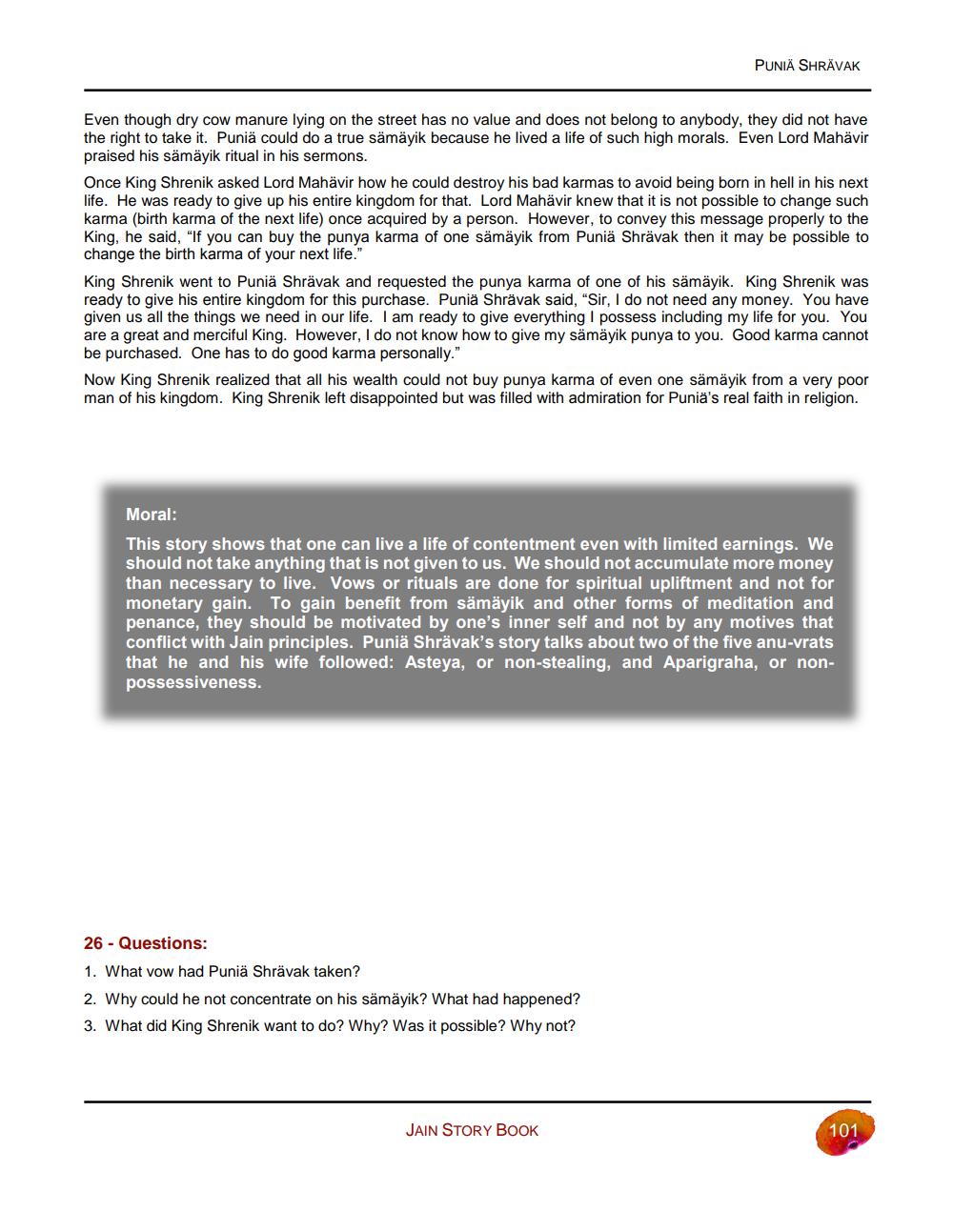________________
Even though dry cow manure lying on the street has no value and does not belong to anybody, they did not have the right to take it. Puniä could do a true sämäyik because he lived a life of such high morals. Even Lord Mahävir praised his sämäyik ritual in his sermons.
PUNIÄ SHRÄVAK
Once King Shrenik asked Lord Mahävir how he could destroy his bad karmas to avoid being born in hell in his next life. He was ready to give up his entire kingdom for that. Lord Mahävir knew that it is not possible to change such karma (birth karma of the next life) once acquired by a person. However, to convey this message properly to the King, he said, "If you can buy the punya karma of one sämäyik from Puniä Shrävak then it may be possible to change the birth karma of your next life."
King Shrenik went to Puniä Shrävak and requested the punya karma of one of his sämäyik. King Shrenik was ready to give his entire kingdom for this purchase. Puniä Shrävak said, "Sir, I do not need any money. You have given us all the things we need in our life. I am ready to give everything I possess including my life for you. You are a great and merciful King. However, I do not know how to give my sämäyik punya to you. Good karma cannot be purchased. One has to do good karma personally."
Now King Shrenik realized that all his wealth could not buy punya karma of even one sämäyik from a very poor man of his kingdom. King Shrenik left disappointed but was filled with admiration for Punia's real faith in religion.
Moral:
This story shows that one can live a life of contentment even with limited earnings. We should not take anything that is not given to us. We should not accumulate more money than necessary to live. Vows or rituals are done for spiritual upliftment and not for monetary gain. To gain benefit from sämäyik and other forms of meditation and penance, they should be motivated by one's inner self and not by any motives that conflict with Jain principles. Puniä Shrävak's story talks about two of the five anu-vrats that he and his wife followed: Asteya, or non-stealing, and Aparigraha, or nonpossessiveness.
26 - Questions:
1. What vow had Puniä Shrävak taken?
2. Why could he not concentrate on his sämäyik? What had happened?
3. What did King Shrenik want to do? Why? Was it possible? Why not?
JAIN STORY BOOK
101




